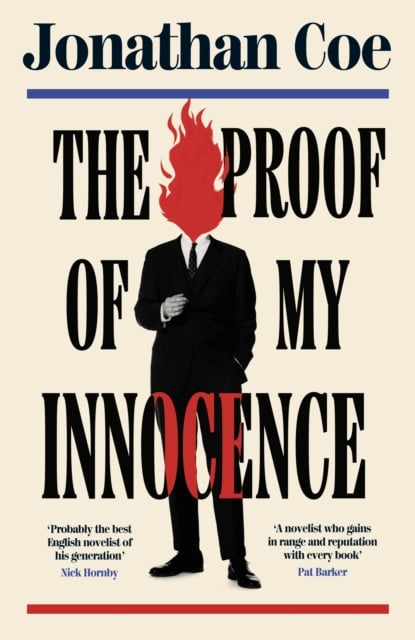


The Proof of My Innocence
Jonathan Coe
Please be aware that holiday delivery is no longer guaranteed for orders placed today or later.
A BLISTERINGLY FUNNY POLITICAL CRITIQUE WRAPPED UP IN A MURDER MYSTERY, FROM ONE OF BRITAIN'S MOST BELOVED NOVELISTS - AVAILABLE FOR PRE-ORDER NOW
'A brilliant, shrewd, satirical novel – gimlet-eyed, funny, very clever and a searchingly profound look at the state of this strange country of ours' William Boyd
Post-university life doesn’t suit Phyl. Time passes slowly living back home with her parents, working a zero-hour contract serving Japanese food to holidaymakers at Heathrow’s Terminal 5. As for her budding plans of becoming a writer, those are going nowhere.
That is, until family friend Chris comes to stay. He’s been on the path to uncover a sinister think-tank, founded at Cambridge University in the 1980s, that’s been scheming to push the British government in a more extreme direction. One that’s finally poised to put their plans into action.
But speaking truth to power can be dangerous - and power will stop at nothing to stay on top.
As Britain finds itself under the leadership of a new Prime Minister whose tenure will only last for seven weeks, Chris pursues his story to a conference being held deep in the Cotswolds, where events take a sinister turn and a murder enquiry is soon in progress. But will the solution to the mystery lie in contemporary politics, or in a literary enigma that is almost forty years old?
Darting between decades and genres, THE PROOF OF MY INNOCENCE is a wickedly funny and razor-sharp new novel from one of Britain’s most beloved novelists, showing how the key to understanding the present can often be found in the murkiest corners of the past.
'Probably the best English novelist of his generation' Nick Hornby
'Coe shows an understanding of this country that goes beyond what most cabinet ministers can muster . . . he is a master of satire but pokes fun subtly, without ever being cruel, biting or blatant . . . his light, funny writing makes you feel better' Evening Standard
‘British novelists love to diagnose the state of the nation. Few do it better than Jonathan Coe, who writes with warmth and subversive glee about social change and the comforting mundanities it imperils’ Spectator










